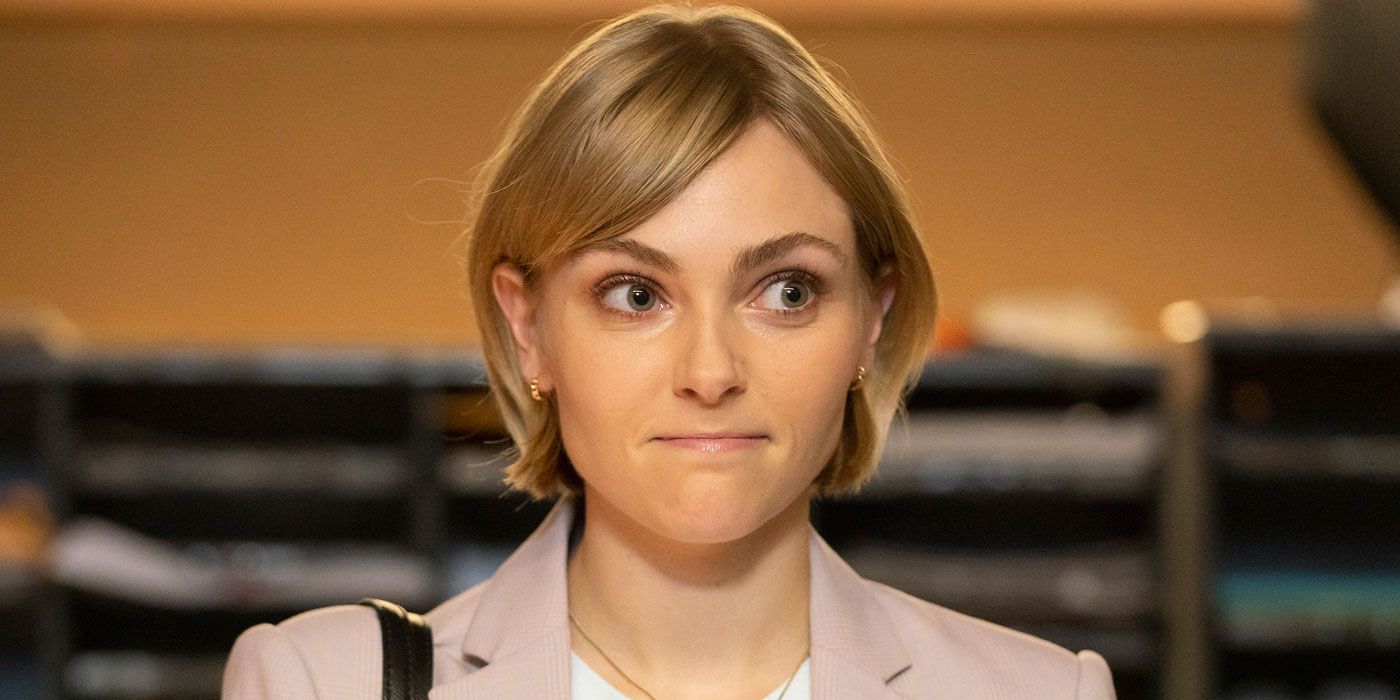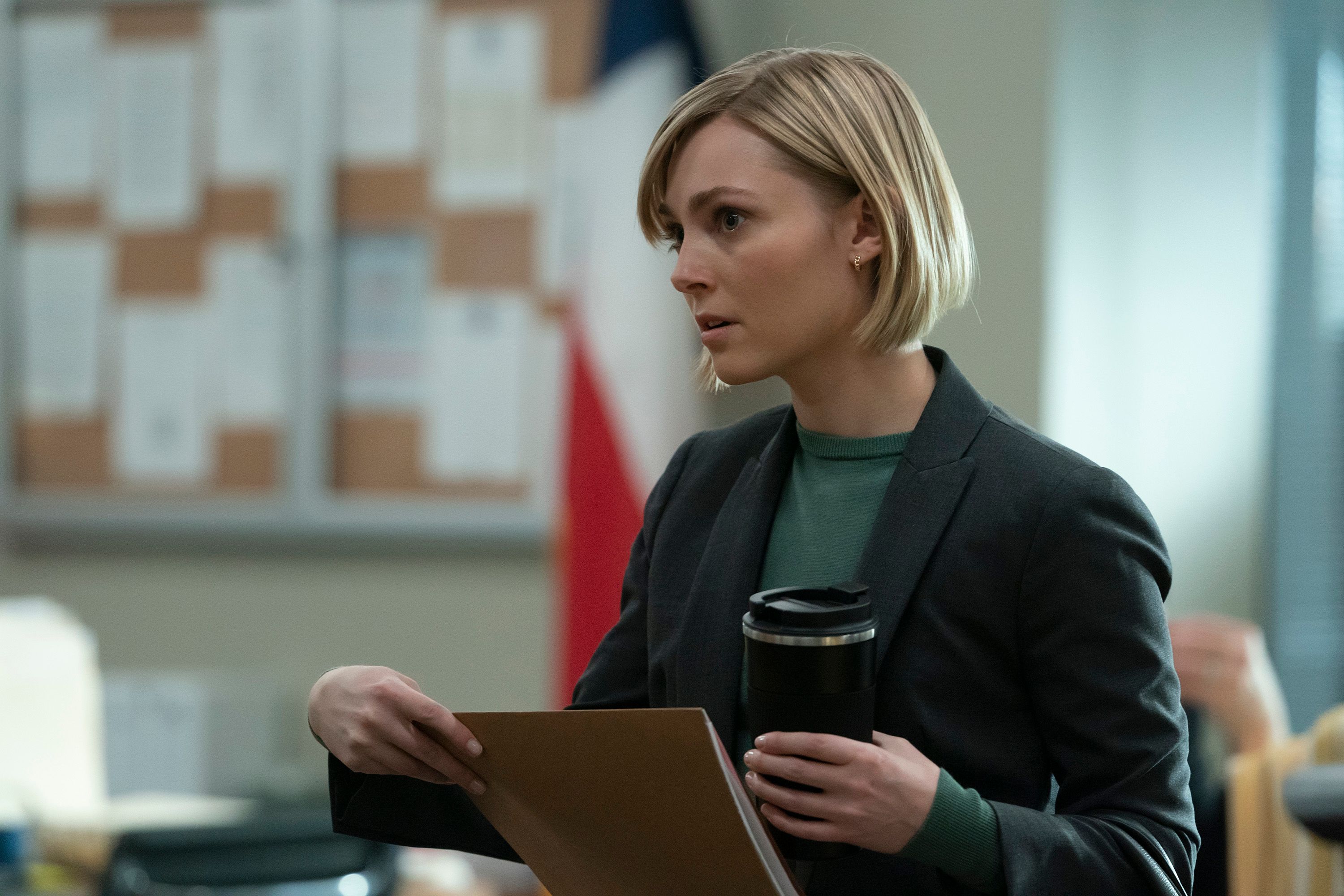The Peacock limited series Dr. Death is in many ways much more a horror story than a drama, though its real-life events do include some real-life heroes. Based on the Wondery podcast, the series focuses on Christopher Duntsch (Joshua Jackson), a Texas physician whose arguably evil actions during life-threatening surgeries continued until two doctors, Randall Kirby and Robert Henderson (played respectively by Christian Slater and Alec Baldwin), were able to team up with assistant district attorney Michelle Shughart (AnnaSophia Robb) to put him behind bars.
In a one-on-one interview with Collider, Robb explained what she did to master the tricky technical jargon that her character needed to relay to the jury, how she felt about the all-female directing team behind the series, and how one key aspect of playing Michelle got changed to be even more true to life... and required her to do some extra preparation.
Collider: So I've been asking this question to everyone, because I think it's an important one: How has making the show changed your relationships, going to the doctor?
ANNASOPHIA ROBB: I think you'll probably get the same answer from all of us. I know everyone's like, Get a second opinion. Get a second, get a third opinion. It does feel a little bit more icky, that's for certain. But I know that there are doctors who are really fighting to do the right thing.
Of course. What was key for you in terms of coming at trying to get into your character's head space?
ROBB: I was able to speak with the real person, Michelle Shughart, and ask her questions and she was so kind and very open and candid with me. That was the foundation. It was our conversation and knowing her thought process to the whole thing and her motto. Her work motto is, do the right thing.
When I think of prosecutors, you think of these sort of like top hard, badass people, who want to lay down the law. That's how I imagined them. But her approach is very empathetic. Her approach is very much, do the right thing. What is the appropriate form of justice? She thought, Duntsch gave these patients a life sentence, I'm going to give him a life sentence. Like, this guy, we need to get him into prison, but we also need to get as much justice as possible for the victims and their families. So that was her main focus. And it was super critical for me as an actor to be able to just talk with her.
Of course. Everyone on this show, it feels like, has some sort of complicated medical jargon to learn. But it seems like your character had the extra challenge of not just having to deliver some pretty complicated terminology, but doing it in the courtroom settings where you're trying to make it relatable to a jury.
ROBB: Yeah. So, when I learned it, I was memorizing it, and it just wasn't sticking. And I would say, I don't know what I'm saying, I started this in the wrong way. And so I jumped on the phone with one of the neurosurgeons, who was advising. And I walked through every... Well, first I Googled every different part of the body, and I learned the spine, and like where. And then I watched YouTube videos of the surgeries, so that I knew actually what was happening. And once I knew what was happening, and once I talked with our resident neurosurgeon, just to double check, and knew where everything was and what happened and what should have happened, then it was all visual for me. I was able to learn it immediately because I could visualize what had happened.
That's really helpful.
ROBB: Yeah. That's sort of what Michelle did. I mean, also, she had to learn neurosurgery and that was part of the complications of the cases that she had to learn much, much more than I. I mean, that case went on for like two or three weeks. Our courtroom scene filmed for, one week. Maybe two, actually.
I feel like when you get a character like this, having a detail like she likes to go shoot hoops must be really helpful.
ROBB: Yes. So, originally my character played video games, and then they changed it because Patrick, our brilliant showrunner, [asked Shughart] what do you do to blow off steam? What's the thing you do? She goes, Oh, I like to shoot basketball, I played in high school. And so, I didn't play basketball, at all. I was like, Crap. Okay, I need to learn it. So I practiced every day, for like four months. And I hired a coach, Coach Coburn, and played relentlessly. And I love it now. It's so fun.
Of course. So in the original script, she'd play video games or...
ROBB: Yes. In the original scripts, and they quickly changed it. And so it just establishes a theme of like, okay, it's the way she processes. She gets up super early in the morning, that's her workout, but she's processing and thinking. It was a much more active, sort of action.
Of course. I imagine that wasn't the sort of thing you expected you'd have to prepare for, when you took the role originally?
ROBB: No. Which is why I loved it, though. And then it ended up mirroring because there was a court. I practiced at the court by my house, which is outside. But it was too cold in winter. So, there was another indoor court. And so I would get up super early and go and practice, and shoot, and do those drills. Just like I do in the show. It was very meta.
To wrap up, it's becoming less of a novelty that a show that would be directed by an all-women team, but it still is notable enough that I get to ask you the question, and you can tell me how you felt about it.
ROBB: I know. Isn't it great that that happened. I'm pleased. We have a phenomenal slate of female directors for the entire show, like Jennifer Morrison, Maggie Kiley, and So Yong Kim. It was awesome. It's like very much a male-dominated show and it's sort of masculine, I think. I wouldn't say it has a feminine touch, it does not at all. But I think Patrick was very mindful in terms of like, he wanted to make sure that there was a balance. And they're all brilliant directors.
Dr. Death is streaming now on Peacock.


